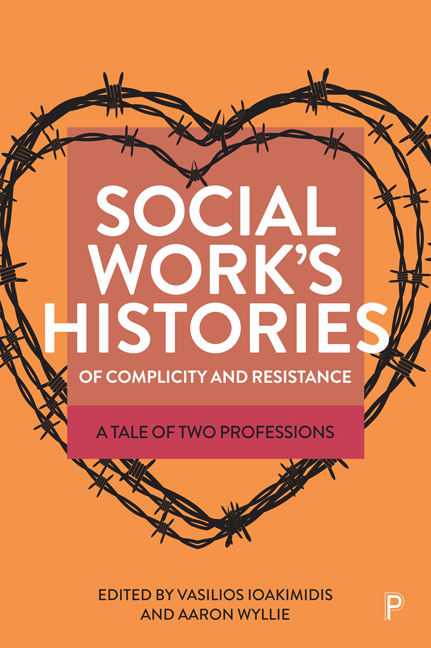Book contents
- Frontmatter
- Contents
- Notes on contributors
- Acknowledgements
- Preface
- Part I Making amends with the past
- Part II Legacies of colonialism and racism in social work
- Part III Social work’s contested ideologies
- Part IV Social work’s complicity with institutionalisation and detention
- Part V Survivor perspectives and contemporary reflections
- Index
10 - The radical roots of popular social work in Palestine
Published online by Cambridge University Press: 20 January 2024
- Frontmatter
- Contents
- Notes on contributors
- Acknowledgements
- Preface
- Part I Making amends with the past
- Part II Legacies of colonialism and racism in social work
- Part III Social work’s contested ideologies
- Part IV Social work’s complicity with institutionalisation and detention
- Part V Survivor perspectives and contemporary reflections
- Index
Summary
Introduction
In this chapter I want to look at the roots of what we might term an ‘organic’ Palestinian popular social work. There is a growing interest in social work within the Palestinian Authority, but too often, I would suggest, this focuses on the introduction and implementation of formal international standards of social work practice, at the expense of a focus on specifically Palestinian traditions of collective, community welfare provision (see Lindsay et al, 2007; Faraj, 2019).
To put this in context, professional interpretations (and many academic histories) of social work often ignore the contested nature of the social work project (Payne, 2005). They suggest a unified profession which has developed and grown over time, reflecting a common origin, set of practices and methods and a shared value base. The chapters brought together in this collection immediately throw this conceptualisation into question. As Midgley (2001) points out, social work is divided by competing interpretations and traditions of what it can and should be (for him there is the remedial or case-work tradition, the developmental tradition and the activist or radical tradition). These are important, and different, perspectives within professional social work and speak to different values and political standpoints on the social work project. But they remain different approaches within the institutions of the profession, a social work primarily organised ‘from above’ to meet the demands of service providers, institutions and states.
Writing in an earlier article with Chris Jones, we drew on a concept developed by the American theorist and activist, Hal Draper (1966), to suggest that we could usefully consider social work as having ‘two souls’: one the official ‘soul’ of professional social work (divided as Midgley, 2001 notes) and another developing out of the alternative cultures, practices and struggles of oppressed, marginalised and class-based networks within capitalist society (Jones and Lavalette, 2013). Our suggestion was that there is, in addition to ‘professional’ social work, a different form of social work, one that I have termed elsewhere ‘popular social work’ (Lavalette, 2011).
- Type
- Chapter
- Information
- Social Work's Histories of Complicity and ResistanceA Tale of Two Professions, pp. 148 - 162Publisher: Bristol University PressPrint publication year: 2023



